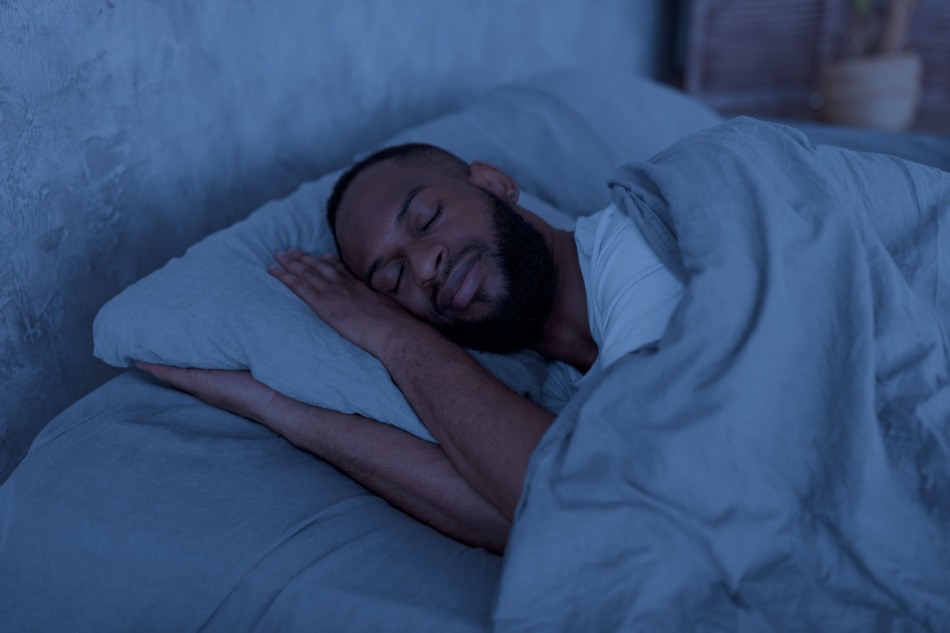We’ve all been there— lying awake in the middle of the night with nothing to keep us company except anxious thoughts and preoccupations like, “How am I going to get through my massive to-do list tomorrow if I’m sleep deprived?” Or, just as distressing, thoughts about the overwhelming sociopolitical issues and worries about climate change!
According to Fiona Barwick, Ph.D. and director of the Sleep & Circadian Health Program at Stanford University School of Medicine, stressing out about the fact that they’re awake when they shouldn’t be is the last thing people should do if they find themselves unable to sleep in the middle of the night. What should you do instead? Read on for Dr. Barwick’s top advice.
Recognize that your brain is overreacting
Many factors might cause nighttime waking: Anxiety, consuming alcohol before bed, having to pee, your partner (or dog) snoring—anything can wake you up.
Even though it can be frustrating, it’s okay to have trouble falling asleep again. Dr. Barwick claims that “it doesn’t mean your sleep is broken.” She says that it’s easy to fall into catastrophic thinking like, “I’ll never get back to sleep and my day tomorrow will be ruined!” We’re predisposed to spiraling thoughts: Dr. Barwick says the frontal cortex, which controls reasoning and emotion, shuts down first when you fall asleep.
After the first three to four hours of sleep, your limbic system—including the amygdala, which controls fear and anxiety, and the hippocampus, which stores memories—takes over. Dr. Barwick says your emotional volume may rise, making it easier to ruminate about a high-school mistake, your disorganized inbox, or the rising number of endangered species.
Dr. Barwick suggests noticing what’s happening to avoid falling too far from dreamland. Saying “I’m okay, my brain is just overreacting,” can help you stop catastrophic thinking. This awareness might help you relax and drift into sleep.
Do something relaxing (that doesn’t involve a screen)
Dr. Barwick says the usual response is to concentrate hard on falling asleep again. Unfortunately, “That practically guarantees you will stay awake longer,” she warns. Thinking about not sleeping can agitate you. Accept your situation—don’t fight being awake—and focus on something else.
Dr. Barwick recommends reading, knitting, or journaling if you can’t get to sleep after around 20 minutes. Avoid screen-based activities like finishing work or watching that binge-worthing series—you want to divert yourself, not stress out or expose your eyes to sleep-sabotaging blue light.
Dr. Barwick advises being calm and letting your “sleep drive”—the body’s “pressure” to sleep— help you fall asleep. Besides, focusing on a relaxing pastime rather than fretting over the clock is a more pleasant way to spend your twilight time. On that note: Don’t check your phone—looking at the time may make you uncomfortable, and the closer the blue light is to your face, the more likely it is to stimulate your nervous system and keep you awake.
Try to keep your sleep disruptions in perspective
Yes, sleep is necessary. It boosts energy and mood. After a bad night’s sleep, it’s natural to worry about your ability to get through the day. “The reality is that you will likely get back to sleep and you will be okay tomorrow,” Dr. Barwick says. “People don’t realize that you can typically function after a night of poor sleep.” It’s normal to worry that the next day will be terrible, but it may be your emotionally reactive brain talking, not your sensible one.
Tomorrow may be sleepier. You may be grumpy and your workout will feel harder. However, Dr. Barwick advises continuing your day and expecting greater sleep the following night. The good news is that sleep self-corrects. As long as you don’t meddle, she says, if you have a bad night’s sleep, you’ll sleep better the next night. Avoid extended naps and early bedtimes, because even though they might sound appealing, they might disrupt your sleep routine further. (And if you consistently cannot sleep or wake up feeling unrested, consult a physician to determine the problem.)












